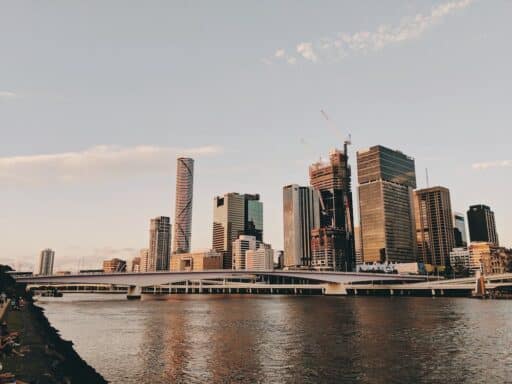Can foreigners buy property in Australia? What are the steps? The costs? What about the benefits? We will discuss all these in this guide, plus other necessities.
With the consent of the Foreign Investment Review Board (FIRB), non-Australian citizens, permanent residents, and holders of short-term visas can buy investment properties and residential real estate in Australia. Foreign investment proposals are reviewed by the FIRB on an individual basis.
The purchase of residential real estate and investment properties is, nevertheless, subject to strict laws. This is primarily due to the FIRB’s mandate to direct foreign investment into new construction rather than older buildings.
The fundamental goal is to get out-of-towners to put money into building something new, which will help the economy and create jobs.
The government may achieve these goals and more through stamp duty levies, which also protect Australian citizens’ rights to own property and buy homes.
If you want to invest as an expat or high-net-worth individual, you can email me (advice@adamfayed.com) or use these contact options.
Table of Contents
How’s the Australian property market?

The year 2023 is seen by many as a watershed for the real estate market, signaling the beginning of a new cycle based on the predictions of experts. A swift recovery seems less likely with this shift, and the market is more likely to show signs of fragmentation.
There will be a small increase in Australia housing prices, perhaps between 2% and 5% this year, according to forecasts. An ABC News report cites an August property market analysis from PropTrack, which projects that Brisbane and Adelaide will see the greatest increases among Australia’s big cities.
Home prices are predicted to vary widely among regions. In the remaining months of the fiscal year 2024, Perth is expected to show the biggest house price growth. In contrast, Hobart is predicted to have the greatest growth of any city in Australia in FY 2025, at 14.2%.
Notably, Hobart apartments are set for substantial growth, too, with forecast rises of 8.7% and 10% over the next two years, respectively, exceeding all other major cities. KPMG predicts that Sydney, Melbourne, and Adelaide will follow this trend, which will result in a constantly shifting real estate market.
Buying Australian real estate 101
Getting a mortgage in Australia as an expat
As an expat, it is typically necessary to meet strict eligibility standards in order to apply for a home loan in Australia. Having a consistent source of money is a common demand. Expats must also meet specific requirements, such as being the principal breadwinner in the family, having connections to Australia—such as family or close relations—and carrying a valid visa for the country.
Several financial institutions may have different paperwork requirements during the mortgage loan application process. This may require you to provide your tax returns, W-2 forms, and pay stubs in hard copy. In addition, applicants might have to submit things like tax returns and identification for all trustees, directors of trustees, and beneficiaries of any trust structures.
Expats can get loans from many lenders for Australian houses. You must realize that not all lenders will meet your financial needs. So, it’s best to investigate and compare lenders’ options to find the one that best meets your needs and tastes. This method will help you get an Australian expat home loan that suits your financial goals.
What are the costs of buying property in Australia for non residents?
Australia property buyers must consider many costs and fees:
- An advance deposit of 10% – 20% of the property’s purchasing price is typical. This payment is non-refundable if you cancel.
- A state or territory property transfer tax (Stamp Duty) is normally 4% – 6% of the property’s value, depending on region and purchase price.
- A licensed conveyancer or solicitor must evaluate your contract, title checks, and settlement documents. Depending on complexity, the legal and conveyancing costs can reach $700-$2,500.
- The lender values the property once to match your deposit and loan amount. The property valuation fees typically cost $100–$300, depending on property type, location, and value.
- The state charges a registration cost for your mortgage.
- State governments charge a transfer cost for property title transfers. State-specific costs can reach up to about $2,900.
- Professional building and pest inspections uncover property issues that may affect value. Inspections cost up to $1,000.
- If your deposit is less than 20%, you may need Lenders Mortgage Insurance. The amount depends on loan and deposit size.
- You’ll pay council rates, water rates, and strata fees after the purchase.

What properties can you acquire?
The legislation that allows foreign investors to buy Australian real estate is meant to discourage overseas buyers from purchasing already-built homes. Instead, a lot of countries will let foreign investors buy brand-new constructions or plots of land.
New buildings are properties that have never been occupied or sold as residential real estate before, as defined by the Foreign Investment Review Board (FIRB). Developer-sold investment properties cannot have been lived in for longer than a year.
Foreign nationals can buy land in Australia that are undeveloped, provided that a building is started on the site within four years after the approval date. Proof of construction completion must be submitted to the FIRB within 30 days of its completion.
There are three exceptions to the law that says foreign investors can’t buy pre-existing homes:
Investors from other countries are allowed to buy existing homes provided they plan to renovate and add to the local housing supply. In most cases, this entails tearing down the current structure and replacing it with a newer, larger one or several new homes. However, evidence of completion must be given within 30 days and more than one additional property must be completed within four years following FIRB clearance.
A temporary resident of Australia may apply to buy a home for personal occupancy on the condition that the resident sell the property before leaving Australia. It is not necessary for a temporary resident to sell their home after they become citizens or permanent residents.
The prohibition on investing in previously occupied homes does not apply to the purchase of commercial property. The FIRB usually has fewer criteria for commercial real estate investments than for residential real estate transactions, though clearance is still required.
To maintain the larger goal of guiding foreign investment toward new properties and contributing to expansion of the housing stock, these exclusions enable some flexibility within the restrictions and allow foreign investors to engage in certain property transactions.
Buying property under company name
When buying property in Australia, you can organize your business in a variety of ways, including as a trust or a proprietary limited company.
Increased safety for one’s possessions is a major advantage of buying property under company name in Australia. You can protect your personal assets from business-related obligations and legal demands by purchasing property in the name of your corporation. In the event that your business incurs debts, you will often only be responsible for your initial investment. Your private possessions are usually safe.
Buying a home through a corporation may help you save money on taxes. Depending on your personal situation and the structure of your firm, you may be eligible for tax reductions and maybe incur reduced capital gains tax.
However, buying real estate in the name of a corporation is more convoluted and costly than doing so personally. There are often stricter legal and administrative requirements for businesses.
It can be more difficult to get a loan approved for commercial property than for a personal residence. Financial institutions are pickier about lending money for commercial properties.
What about investment properties?
Investment property income must be reported on an Australian tax return to comply with tax laws. You can deduct property upkeep costs from your taxes. When you offload the property, you may pay capital gains tax (CGT) if its value rises.
Let’s consider the benefits of buying an investment property in Australia and the risks associated with it.
Pros:
- The unique circumstances in 2023 may produce a beneficial window for property investment, according to some analysts.
- Demand: Federal and state administrations expect more migrants, which could raise housing demand.
- Tight vacancy rates and a decrease in property prices may create buying opportunities in certain suburbs.
- Property investment in Australia takes time. Focusing on housing market fundamentals and local property dynamics can lead to wealth accumulation.
Cons:
- Property market swings might cause investment losses.
- Over the previous year, property ownership expenditures including upkeep, repairs, and taxes have grown, which may deter investors.
- Certain experts regard the property market positively for well-informed investors, but investors must execute due diligence as in research and consult professionals before investing.

What are the best places for buying real estate in Australia?
Here are some notable Australian suburbs and cities that are considered attractive for overseas buyers buying property in Australia in 2023:
Top Suburbs for foreigners buying property in Australia
- Annerley, Queensland is a top neighborhood for investment due to its low prices and high potential for future growth, according to Canstar’s Australian Property Market Report.
- Eaglehawk, Victoria is another 2023 hotspot for real estate investors because of its low prices and high rental yields.
- An increasing population and new investments in the city’s infrastructure bode well for Geraldton, a seaside city in Western Australia.
- Investors in South Australia’s Munno Para neighborhood benefit from the area’s low vacancy rates, strong rental returns, and inexpensive price tags.
- A growing population and new investments in infrastructure are expected to spur development in the South Australian town of Murray Bridge in the coming years.
Top cities for Australian property investment
- With its low prices, expanding population, high rental yields, and promising future value appreciation, Brisbane, Queensland, has emerged as one of Australia’s most desirable real estate markets.
- Cairns, Queensland is a great investment because of its high rental yields and potential for appreciation as a result of the city’s popularity as a vacation spot. It’s a great option for people looking to purchase a second home or retirement residence.
- Bribie Island, Queensland off the coast of Brisbane is a popular vacation spot known for its high rental yields and promising future price appreciation. It’s a great option for people buying a house in Australia.
- Northern Brisbane’s Sunshine Coast is experiencing population growth and infrastructural investment, making it an attractive investment destination with high yields on rental properties and promising appreciation in property value.
- Those in need of reasonably priced properties with promising future growth can consider Rockhampton, a provincial city in Queensland.
- Those in search of cheap houses in Australia with high potential for appreciation should consider the New South Wales city of Tamworth.
- Mount Gambier is a provincial community in South Australia with attractive real estate pricing and promising growth potential for thrifty investors.
- Lockyer Valley, Queensland is a rural area that attracts investors because of its low property prices and promising future expansion.
- Howrah, Tasmania is an affordable option for investors because it is a suburb of Hobart with steady property values and promising growth potential.
- Perth, Western Australia is a great option for investors looking for a strong income flow because of its high rental returns. Capital appreciation is a distinct possibility as a result of projected population growth and planned expenditures on new facilities.
How to buy property in Australia
- Establish Your Budget and Financing choices. Start by working out your budget and financing choices. This vital stage may require a mortgage broker or financial advisor.
- Research. Conduct thorough study on the local property market before buying.
- Employ a Real Estate Agent. A professional real estate agent can help you identify properties that fit your needs and budget. Agents can also offer local property market insights.
- Inspect the property. An in-person inspection is recommended after identifying a property. Here, you can inspect the property and spot any faults that could lower its worth.
- Make an offer and haggle. You can make an offer to the seller if you like the property following the inspection. Real estate agents guide and bargain for clients.
- Undertake due diligence. Prior to finalizing the acquisition, get a building and pest inspection report, reread the sale contract, and check the property’s title and zoning to make sure it matches your needs.
- Settlement: Once sale requirements are met, settle. Pay the remaining purchase price and transfer ownership to you in this phase.
Pained by financial indecision? Want to invest with Adam?

Adam is an internationally recognised author on financial matters, with over 760.2 million answer views on Quora.com, a widely sold book on Amazon, and a contributor on Forbes.



